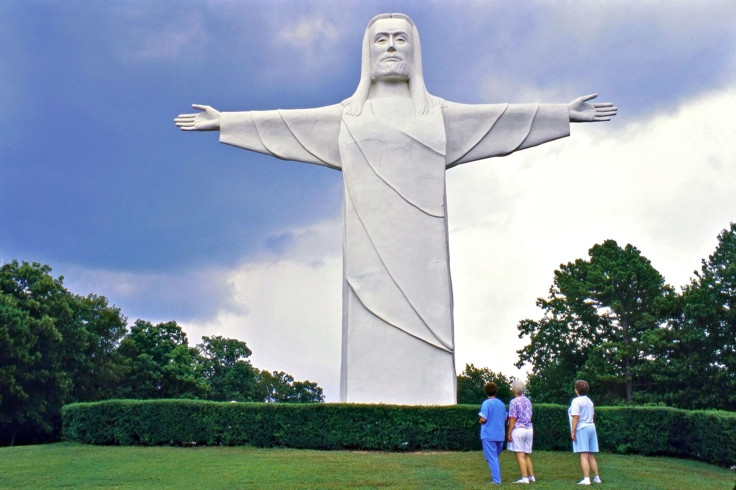Post Christian World? Jesus Christ Statue Beheaded Again In Indianapolis

A statue of Jesus Christ was beheaded for the second time in two weeks near the front doors of a church in Indianapolis, Indiana, over the weekend. The Rev. Brad Flaskamp of the Cottage Avenue Pentecostal Fellowship church said the head was knocked off the statue and was left nearby in the first incident but in the second one, the head went missing and it's likely that somebody stole it, The Indianapolis Star reported.
A suspect was not immediately identified and the Indianapolis Metropolitan Police urged any person with a lead about the incident to contact them. "I thought that it's someone new in the neighborhood who's got some really deep problems,” said Sue Myers, the church secretary, according to New York Daily News.
Police reported the incident to the Federal Bureau of Investigation, according to Sgt. Kendale Adams. The police did not indicate whether the vandalism fits into the FBI's definition of a hate crime. Flaskamp said he did not think it was related to a hate crime but could have been committed by someone who has ill feelings about God or someone who doesn’t like the statue. Two other churches were also vandalized in Indianapolis over the weekend, local media reported.
The beheading occurred at a time when some Christian leaders have bemoaned increasing secularism in the U.S., fueling debate over whether the nation has entered a post-Christian world. Archbishop Charles Chaput of Philadelphia released Tuesday his book "Strangers in a Strange Land: Living the Catholic Faith in a Post-Christian World." It talks about changes in the American public life due to technological and scientific developments.
“Some of the change is inevitable and good because we’re a country built on immigration, and our demography naturally changes over time. More important, I think, is that many of the developments in our legal and educational philosophies and our sexual mores over the past 60 years have not been friendly to religious belief, and especially to Christian faith. At the same time, technology has fundamentally altered the way we learn, live and work, how we imagine the 'supernatural,' and even how we think, or whether we think at all, about God,” he said in an interview with Catholic News Agency.
The number of Americans who identified as Christians had fallen nearly eight percentage points in only seven years, according to a 2015 survey by the Pew Research Center. About 71 percent of Americans identified as Christian in 2014, down from 78 percent in 2007. In the same period, Americans identifying as having no religion grew from 16 percent to 23 percent, BBC News reported.
Indiana church's Jesus statue beheaded twice in two weeks https://t.co/P6C7ZGaHVY pic.twitter.com/HKwJihjZXa
— Fox News (@FoxNews) February 21, 2017
© Copyright IBTimes 2024. All rights reserved.












